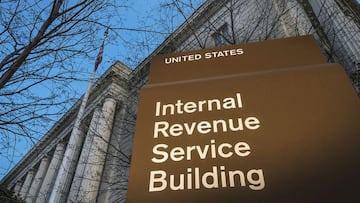Millions of taxpayers are expected to miss a key filing deadline on June 17th: Make sure you aren’t one of them
Time is running out for millions of taxpayers to submit their returns to the IRS to avoid fines and penalties. Make sure you aren’t one of them.


Of the more than eight million US citizens and green card holders who live abroad, only a fraction, around 500,000, fulfill their tax obligations to Uncle Sam by filing a tax return with the IRS each year. This year, the deadline for US citizens living abroad is 17 June, meaning there is only a week to submit those returns. The IRS can offer support to citizens living abroad who are required to submit a return, and they can be reached at 1-267-941-1000.
The #IRS reminds taxpayers living and working outside the United States to file their 2023 federal tax return by June 17, 2024. Learn more: https://t.co/9db4IpxWLI pic.twitter.com/txezGmQpxR
— IRSnews (@IRSnews) June 8, 2024
For those planning to return to the United States soon, submitting a tax return will put you in good standing with the IRS. This will make you eligible for tax credits and benefits offered to residents of the country.
Who falls under this category of taxpayer?
The IRS employs the ‘physical presence test’ to determine whether someone was ‘present in a foreign country or countries’ for a period that qualifies them as a US taxpayer abroad. Importantly, this test offers flexibility as it does not require the 330 days to be consecutive; the tax authority is simply looking for individuals who have spent that amount of time outside of the country over a year. The ASK a CPA YouTube channel provides support to taxpayers abroad by answering basic questions that those in this situation often have.
Will passing the test hurt me in the future?
No. The test is not meant to keep tabs on taxpayers abroad, and it “doesn’t depend on the kind of residence you establish, your intentions about returning, or the nature and purpose of your stay abroad,” reports the IRS.
Automatic extensions have been granted
Related stories
Contrary to a common belief among US residents living abroad, they are not exempt from filing with the IRS. Failure to do so can lead to penalties and other legal issues. The IRS offers this group an automatic two-month extension each year. This year, the filing deadline was extended to 17 June, leaving under a month. However, unlike taxpayers living in the US, an extension through 15 October 2024 can still be requested by submitting this Form to the IRS. “If you are a US citizen or resident living or traveling outside the United States, you generally are required to file income tax returns, estate tax returns, and gift tax returns and pay estimated tax in the same way as those residing in the United States,” warns the IRS.
Can foreign income be deducted from the US tax bill?
However, earnings in other countries are sometimes subject to different rules than those in the United States are taxed under. For instance, many living abroad may have foreign-earned income, meaning they are not associated with a US employer. The IRS provides a tax exemption for this type of income up to a specific limit. For the tax year 2023, the IRS would tax up to $120,000 ($240,000 for married couples who file jointly, and both would report foreign-earned income) from their income. If your foreign-earned income is below this threshold, you may not be required to pay US taxes. However, it’s important to note that you still need to report this income to the IRS. Failure to report foreign-earned income to the IRS can result in penalties and other legal issues, so it’s crucial to understand and fulfill these reporting requirements
Complete your personal details to comment